Meet the Principal Investigator
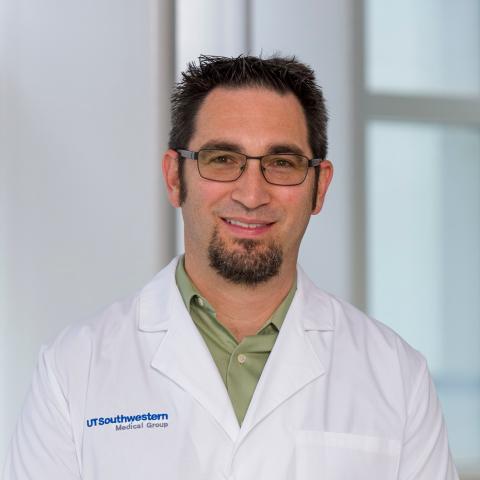
Todd Aguilera, M.D., Ph.D.
Todd Aguilera, M.D., Ph.D., is a physician-scientist trained as a radiation oncologist with expertise in molecular engineering, molecular imaging, the tumor microenvironment, and tumor immunology.
Dr. Aguilera completed the Medical Scientist Training Program in 2011 at the University of California San Diego. He obtained his Ph.D. in 2009 in Dr. Roger Y. Tsien's laboratory, which received the 2008 Nobel Prize in Chemistry. His Ph.D. work focused on engineering and validating activatable peptide-based probes to target the tumor microenvironment. Molecules that stemmed from his work are currently being tested in clinical trials for fluorescence-guided surgery of breast cancer.
After an internal medicine internship in San Diego, he joined the Radiation Oncology Residency program at Stanford University. He worked with Dr. Amato Giaccia as a resident and postdoctoral fellow studying factors in the tumor microenvironment that promote immunologic tolerance and developing therapeutic approaches to improve immunotherapy responses in solid tumors. More specifically, he is interested in intrinsic factors that prevent/suppress the anti-tumor immune response after radiation and how these factors can be reversed.
Dr. Aguilera was recruited to the Department of Radiation Oncology at UT Southwestern to establish his research group which will continue to investigate the immune microenvironment and engineer approaches to target cells and molecules that lead to immune privilege. He treats radiation oncology patients with gastrointestinal cancers, is developing laboratory projects in pancreatic cancer, and aims to establish collaborative projects with clinicians and researchers.
Outside of the lab, Dr. Aguilera enjoys spending time snowboarding, surfing (when he can escape back to California for a few days), brewing beer, and spending time with his family. His wife is also on faculty at UTSW in the Division of Neonatology. He has a young son and daughter whom he looks forward to taking to the mountains and ocean.
Current Lab Members
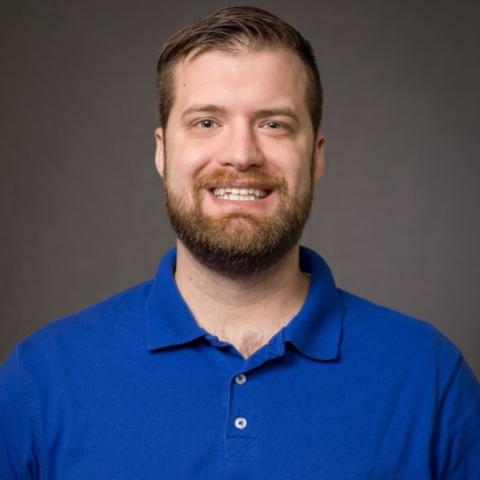
Derek Abbott, Ph.D.
Postdoctoral Fellow
Derek Abbott, Ph.D., received his Ph.D. in molecular and cellular biology from Baylor College of Medicine in October 2023. His research focused on developing novel biosensor assays to detect the effects of endocrine disrupting chemicals on estrogen receptor β, a key driver in several diseases. His doctoral work led to the creation of the first high-throughput screening platform for endocrine disrupting chemicals impacting ERβ. He also contributed to developing a transgenic zebrafish model for simultaneous screening of both estrogen receptor subtypes activity. Prior to his graduate studies, Dr. Abbott received his B.S. from Brigham Young University where his early work focused on screening natural metabolites with anti-cancer potential.
Dr. Abbott joined UT Southwestern as a postdoctoral fellow in early 2024 as part of an interdepartmental collaboration between the Lyda Hill Department of Bioinformatics and Radiation Oncology. Dr. Abbott’s current project aims to bring together resources and expertise from this six PI collaborative effort to understand the molecular mechanisms of therapy resistance in colorectal cancer. His interests include lightsheet microcopy, multiplex immunofluorescence, expansion microscopy, spatial biology, pipeline development, and 3D image analysis.
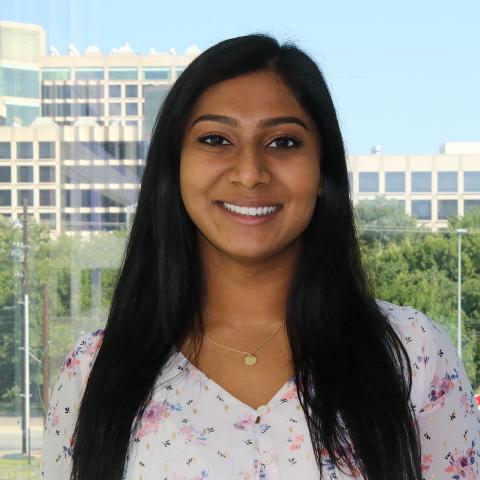
Neha Barrows
Research Assistant II
Neha earned her B.S. in biochemistry with a minor in biology from Texas Tech University in 2020. After graduating, she moved to Dallas and began working as a research assistant in a cancer drug discovery lab at UT Southwestern.
In June 2023, Neha joined the Aguilera Lab, where she focuses on utilizing CODEX multiplex immunohistochemistry to explore the tumor microenvironment in human cancer tissues. Additionally, she has worked under Dr. Aguilera for the Simmons Cancer Center’s Interdisciplinary Pancreatic Cancer Program, serving as both a data manager and the leader of various quality improvement projects.
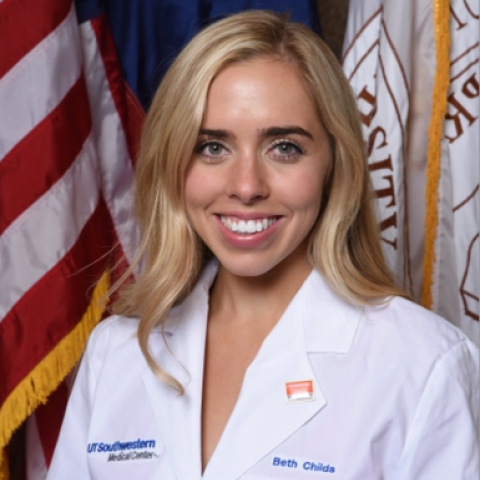
Beth Childs
M.D. Student Research Fellow
Beth Childs is a medical student research fellow in the Aguilera Lab at UT Southwestern Medical Center, where she focuses on single-cell RNA sequencing research to uncover cellular heterogeneity and immune mechanisms in cutaneous T-cell lymphoma. Beth graduated summa cum laude from UT Austin in 2019 with dual degrees in finance and business honors, followed by a Master’s in Finance in 2020. Prior to medical school, she worked in healthcare equity research, growing her interest in translational medicine. She is passionate about leveraging cutting-edge technologies to unravel the genetics and vulnerabilities of immune-mediated dermatoses and dermatologic malignancies. Fun fact: Beth is from College Station, Texas, but is a proud Longhorn fan.
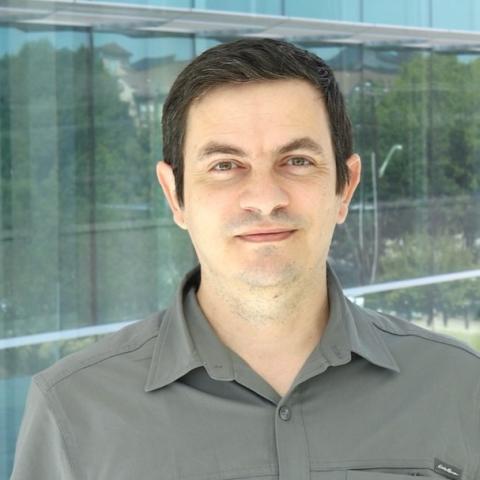
Bassel Dawod, M.D., Ph.D.
Postdoctoral Researcher
Bassel Dawod, M.D., Ph.D., is an accomplished medical scientist and postdoctoral fellow specializing in cancer immunology and oncology-focused clinical trials. With a strong foundation in pathology, Dr. Dawod has contributed significantly to advancing immunotherapy and tumor biology. His expertise spans clinical trial design, regulatory compliance, and cross-functional collaboration, ensuring the highest standards of ethical and scientific integrity.
Currently at the University of Texas Southwestern, Dr. Dawod is engaged in the INNATE clinical trial, exploring the combined effects of chemotherapy, radiation, and anti-CD40 immunotherapy on tumor microenvironments with Dr. Todd Aguilera. His prior roles include overseeing participant care and protocol adherence in the CHILD Cohort Study at McMaster University and contributing to the development of immunotherapies in clinical and preclinical settings at IMV-Inc and Dalhousie University.
A recipient of prestigious awards such as the CIHR Grant Collaboration Award, Dr. Dawod is also a prolific researcher with numerous peer-reviewed publications on topics ranging from oral tolerance and mucosal immunity to innovative imaging techniques for immune cell tracking. His commitment to translational research and mentorship continues to drive impactful advancements in oncology.
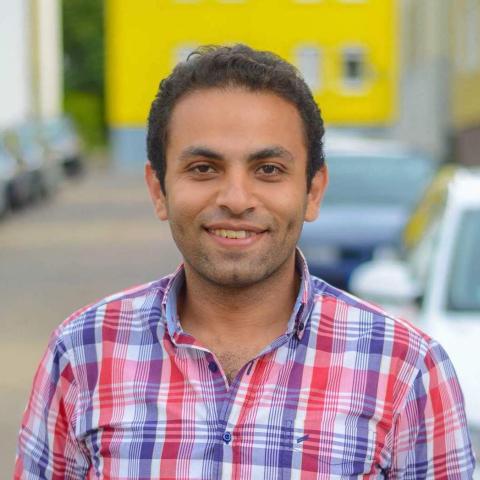
Eslam Elghonaimy, Ph.D.
Instructor
Eslam Elghonaimy, Ph.D., earned his Ph.D. in cell biology and genetics from Cairo University, Egypt, in 2016. He completed postdoctoral training at Universitätsklinikum Münster, Germany, before joining the Aguilera Lab at UT Southwestern in 2018 as a postdoc. His research focuses on the dynamic interplay among tumor, stromal, and immune cells within the tumor microenvironment and how these interactions influence tumor initiation, progression, and therapeutic response.
Dr. Elghonaimy expanded his interests into computational biology through the UT Southwestern Bioinformatics and High-Performance Computing (BioHPC) fellowship, enabling him to integrate bioinformatics with biological research. He has developed pipelines for single-cell RNA sequencing (scRNA-seq), CITE-seq, and immune repertoire analyses, special genomics, applying these tools to clinical trials to explores immunotherapy and radiation therapy.
A recent highlight of his work is the co-development of INSPIRE-seq, a novel platform combining nanobody technology, phage display, and next-generation sequencing to identify immune cell nanobodies within the tumor microenvironment. Published in Nature Communications (2023), this work lays the foundation for innovative cancer therapies.
Dr. Elghonaimy’s research bridges experimental biology, computational analysis, and cutting-edge technology, aiming to uncover therapeutic targets and advance cancer drug development.
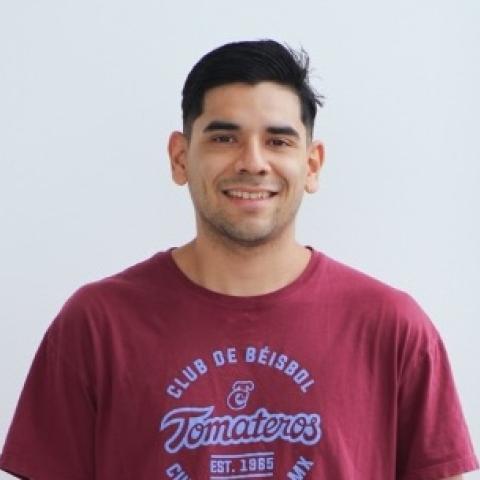
Isaac Gonzalez
Ph.D. Candidate
Isaac Gonzalez received his B.S. in biological sciences from California State University San Marcos in 2018. As an undergraduate he worked as a research assistant in the lab of Dr. Julie Jameson studying epidermal gamma delta T cells and was a research technician at a local water chemistry lab.
Isaac joined UT Southwestern's Biomedical Sciences Graduate School in 2019 and the Aguilera Lab in 2020 due to his interest in studying cancer immunotherapy and tumor microenvironment. His current project aims to elucidate inhibitory mechanisms in dendritic cells limiting anti-cancer immunity with the ultimate goal of applying this knowledge to the development of novel cancer therapeutics.
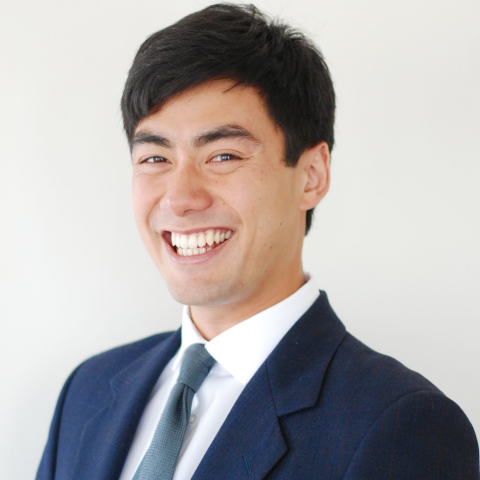
Peter Leung
M.D./Ph.D. Candidate
Peter received his B.A. in biological sciences from the University of Chicago. As an undergraduate, he worked as a research assistant in Dr. Jun Huang's laboratory investigating peptide-major histocompatibility complex interactions with T cell receptors using super-resolution microscopy.
After a year at the Navy Medical Research Center assisting with research preventing heterotopic ossification in amputees, Peter started medical school at UTSW in 2019 and joined Dr. Aguilera's Lab. After a dedicated research year in the lab as a UTSW Dean's Research Scholar, he then joined the Perot Family Scholars Medical Scientist Training Program in July of 2022. Peter is interested in using phage display screening techniques for discovering functional nanobodies that modulate the immune system as potential anti-cancer immunotherapies.
Arely Perez Rodriguez
Ph.D. Student
Arely received her B.S. in biology from the University of California, Los Angeles, in 2020. As an undergraduate, she worked in the labs of Dr. Anna Wu and Dr. Peter Clark, contributing to projects on cancer imaging and autoimmune disease therapies, respectively. After graduating, Arely worked as a research technician at UCLA, where she identified biomarkers for early-stage fibrosis and helped develop non-invasive diagnostic tools for tracking disease progression. She also worked in Dr. Johannes Czernin's lab, where she contributed to the development and treatment of in vivo models of PSMA-expressing prostate cancer.
Arely joined UT Southwestern's Biomedical Engineering program in 2023 and became a member of Dr. Todd Aguilera's lab, where she focuses on cancer immunotherapy. Her current research investigates the immunological landscape of colorectal cancer patients and explores potential combination therapies in preclinical mouse models. She aims to translate these findings into novel therapeutic strategies for improving colorectal cancer treatment.